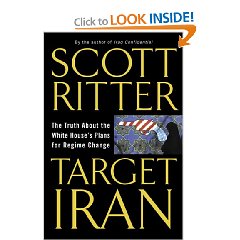 Damns the Man, Ignores the Dead and Wounded,
Damns the Man, Ignores the Dead and Wounded,
Andrew Cockburn
Having read most of the books about the last eight years and the various debacles imposed on the world and on America by Cheney-Bush (see my lists on Iraq After-Action Reports and on Evaluating Dick Cheney), much of this book was not a surprise, but I would also be quick to say that there are a number of gems here not found elsewhere.
Of special interest to me were the reality that the lies and fantasy on the Weapons of Mass Destruction in Iraq were a replay of the Team B lies about Soviet weapons successfully carried out under Reagan. This cabal has a clear pattern of believing that any lie is acceptable, that Congress is to be ignored, that there is no constraint on Executive power.
Gems:
Rumsfeld started talking about bombing Iraq before 3 pm on 9/11.
Rumsfeld built the force that he fought with, back when he was first secretary of defense.
Sadaam Hussein was the only Arab leader that welcomes Rumsfeld in the 1990's.
Novak was a willing accomplice in destroying CIA under Reagan with Team B lies, and again in destroying Plume today.
Rumsfled liked Doug Feith *because* of Feith's notorious stupidity.
Chairman of Joint Chiefs of Staff was widely viewed as an “abused puppy” avoiding confrontation with Rumsfeld.
CIA won the Afghan war, but Rumseld claimed it for himself. No mention that I noticed of Rumsfeld's disterous mistakes in allowing Pakistan to evacuate 3000 Tlaiban and Al Qaeda, and in refusing to but a Ranger battalion in Bin Laden's path when CIA had “eyes on” for four days (see my reviews of “First In” and “JAWBREAKER” as well as various books on my Iraq After Action list).
After a while I tired of this book. I thought to myself that the author has done a good job on destroying Rumsfeld, but there is a great deal of context that is missing, including Cheney's more active role behind the scenes, and virtually no mention of the thousands of US dead and 75,000 amputees that Rumsfeld created for no good reason.
My bottom line: Rumsfeld was put at Defense because the first candidate irritated the President, the President was a fool and wanted to appoint someone his father hated, and Dick Cheney was happy to have his former mentor over at Defense, which Cheney, as a more recent Secretary of Defense, no doubt felt he could manage from the White House. America chose to allow this cabal to steal two elections in a row, and to go to war on a web of lies denounced in advance by General Zinni,at OSS.Net, and in many other places. SHAME ON US. Rumsfled is our child, and we have to live with what we have wrought on the world.
Crossing the Rubicon: The Decline of the American Empire at the End of the Age of Oil
First In: An Insider's Account of How the CIA Spearheaded the War on Terror in Afghanistan
Jawbreaker: The Attack on Bin Laden and Al-Qaeda: A Personal Account by the CIA's Key Field Commander
The One Percent Doctrine: Deep Inside America's Pursuit of Its Enemies Since 9/11
Vice: Dick Cheney and the Hijacking of the American Presidency
 Click Here to Vote on Review at Amazon,
Click Here to Vote on Review at Amazon,
on Cover Above to Buy or Read Other Reviews,
I Respond to Comments Here or There












